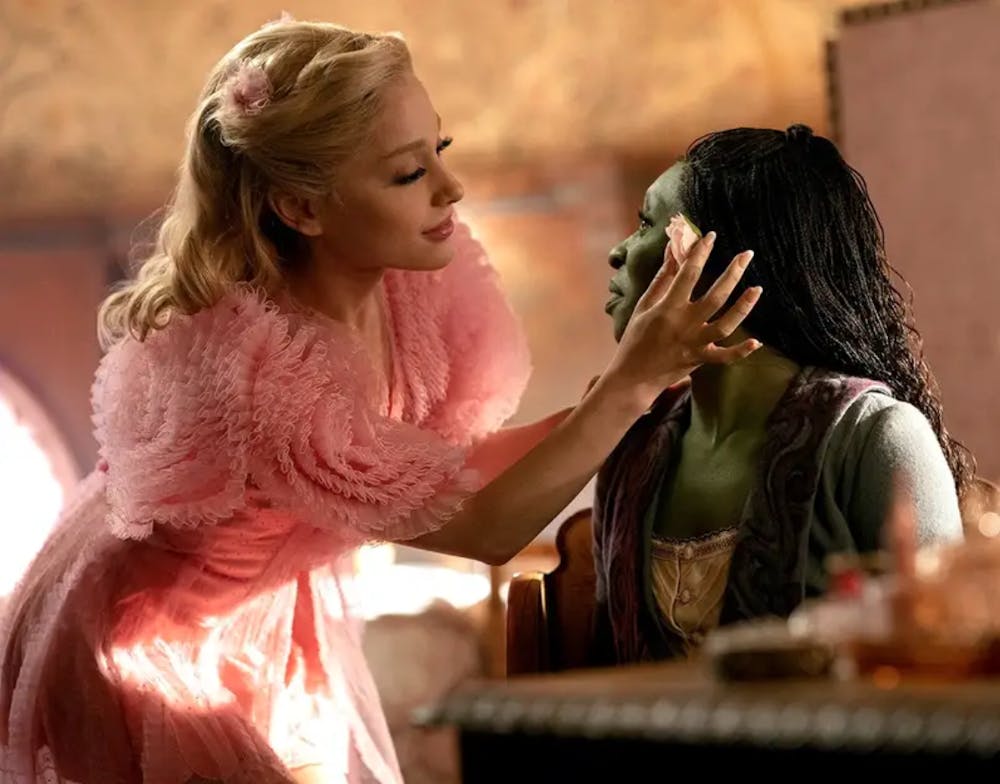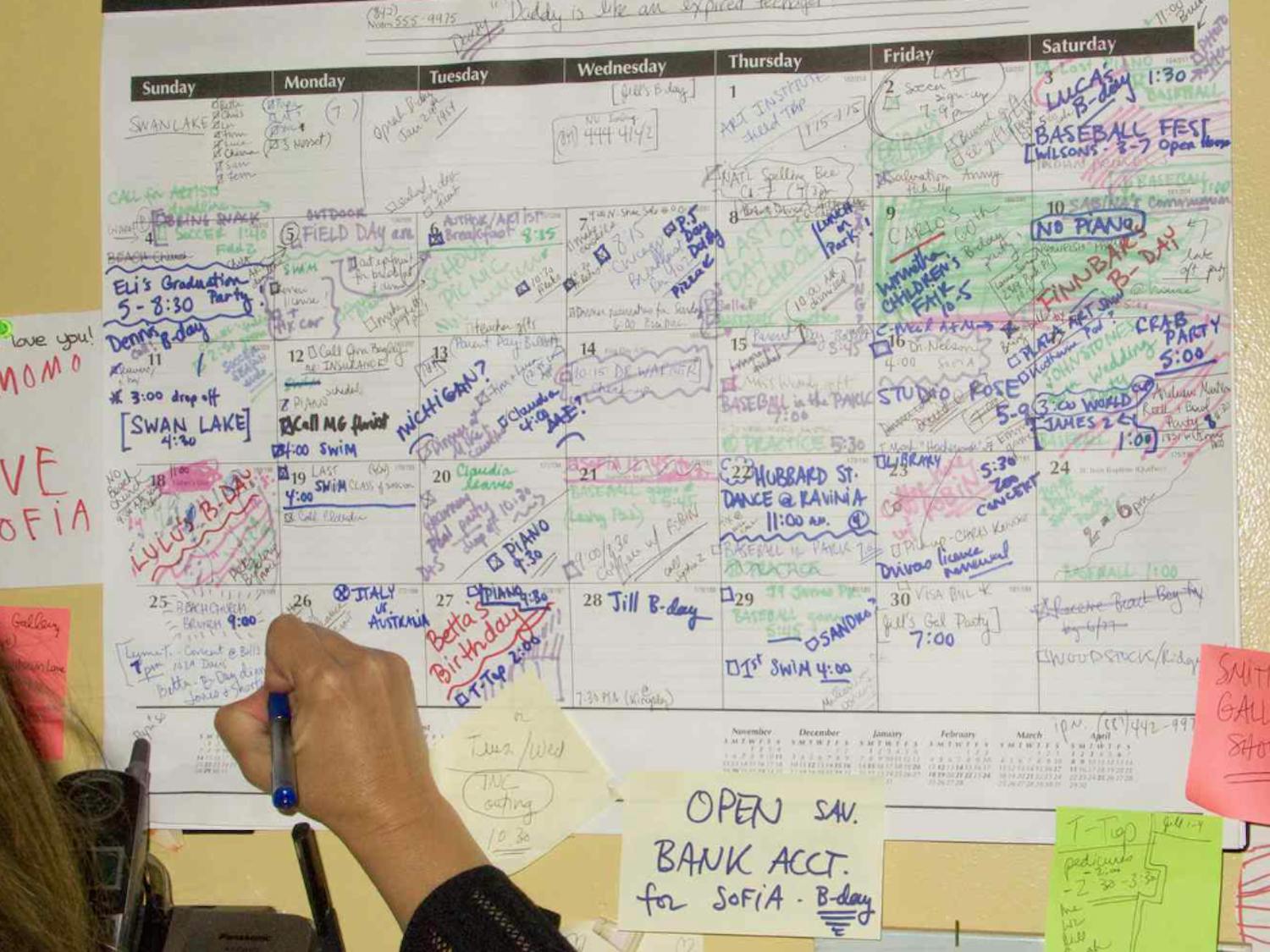In Wicked’s prestigious Shiz University, a vibrant and shining experience of hidden truths, we are given an opportunity to explore the intricate relationship between its two protagonists, Glinda and Elphaba. Though their relationship is commonly deemed a platonic friendship, their interactions tell a different story.
Their potential for a love story, though starting from a place of abhorrence, is steadily significant, particularly to its adolescent viewers. Adolescents navigating through the complexities of growing up, while also moving through societal expectations and a complicated search of identity, have grasped onto this story as a beacon of empowering example. Wicked’s delve into a clear prospect of romantic love challenges heteronormative narratives, empowers female bonds, and encourages the search of authentic identity while representing and validating its young viewers.
To begin, the intensity of the emotions and interactions, both positive and negative, between Glinda and Elphaba surpass that of a traditional platonic friendship. This challenges heteronormative assumptions in society and asserts the growing normality around homosexual relationships. The allowance for intimacy and emotionally charged connection shines brightly and unambiguously in their (though initial loathing) encounters and heart wrenching separation. This unambiguity is a deliberate decision by Wicked’s original author Gregory Maguire in his intentional “lesbian subtext between the two.” This perspective is shared and moved along by not only the two actors playing the protagonists, but additionally Jon M Chu, the director of the movie musical. All four individuals push for the appreciation and acknowledgement of Glinda and Elphaba’s bond. For adolescents, this open and unapologetic embrace of queer media in times of strictly heteronormative fairytales offers a crucial counter-narrative and validates experiences outside the lens of conventional romantic anatomy. Wicked broadens the scope in an exciting, sparkly, and musical way, shaped perfectly for a young person’s imagination, while also providing a sense of belonging for those who feel pushed into the margins.
Beyond its quality of inclusion, the dynamic between Elphaba and Glinda shows a potent and empowering angle on female bonds in a society stereotypical for pitting women against each other. Their deep emotional romanticism towards one another tosses the cliché cliques of superficial friends or dead rivals out of the narrative completely.
Though they begin as polar opposites, their understanding and empathy of each other breaks those walls down and creates a profound, unwavering loyalty and love, unmoving in the testament of time. They challenge each other and push the other’s limits to ultimately foster growth in each other’s lives. In a society and a school that minimizes the strength of female relationships, the two defy all expectations and pull together in a loving, romantic way.
In the song, “What Is This Feeling,” all Shiz students encourage the pair’s “loathing” and side with one (Glinda) while ostracizing the other (Elphaba). This is common in a school environment, and for adolescents, it seems almost the norm. By presenting Glinda and Elphaba as characters in love, whether that be platonically or romantically, Wicked gives a positive example in resisting the implied schoolyard rules and sexist societal standards. The relationship between Glinda and Elphaba preaches the notion that “just because society cares, doesn’t mean you have to.” Their bond is centrally elevated, driving the impression of demonstrating that female connections are profound, complex, and rewarding. This in itself, empowers adolescents, particularly young women, to nurture their relationships and move past the harmful notions society encourages.
Enjoy what you're reading?
Signup for our newsletter
Glinda and Elphaba's potential for a romantic relationship serves as a rich tapestry for young people exploring the search for identity. Some may argue that you search for your identity, your voice, and your “you” for your entire life, and while that may be true, adolescents are in particular, often navigating or drowning in the deep waters of self discovery. Both separately and together, Glinda and Elphaba validate this difficulty through their own experience and provide a conviction for confidence in doing so. Elphaba’s journey through finding herself despite her hated uniqueness, mirrors experiences felt by, and loathed by many young people.
Glinda, though an opposite experience, is still equally and entirely as important. She moves from a popularity-seeking persona to a woman with deep emotional empathy and experience in supporting the other, shedding light on the power of self acceptance and courage to be herself. Together, the two’s romantic relations and confusions relate heavily to the figuring-out of sexuality and validate the feelings of those who feel beyond the walls of normal or overwhelmed with the uncertainty of themselves. Overall, their representation of the true adolescent experience fosters a sense of belonging and provides the powerful feeling of authentic, personal liberation.
Wicked moves past its status as “just a musical” and evolves into a powerful narrative in which it supplies a safe, comfortable, and authentic place for adolescent audiences. By reinventing the familiar story of “The Wizard of Oz” through the lens of potential queer love, Wicked creates a powerful counter narrative: one that offers a significant challenge to heteronormative practices in media and social order, provides a deep appreciation for female bonds and movement past the stereotypes that come with them, and creates a place for identity to be found easily, authentically, and fiercely. It says, in its two-hour, forty-minute, and eleven-song run, that love, identity, and connection can exist, and do exist beautifully, outside the boxes, lines, and boundaries drawn by society.




